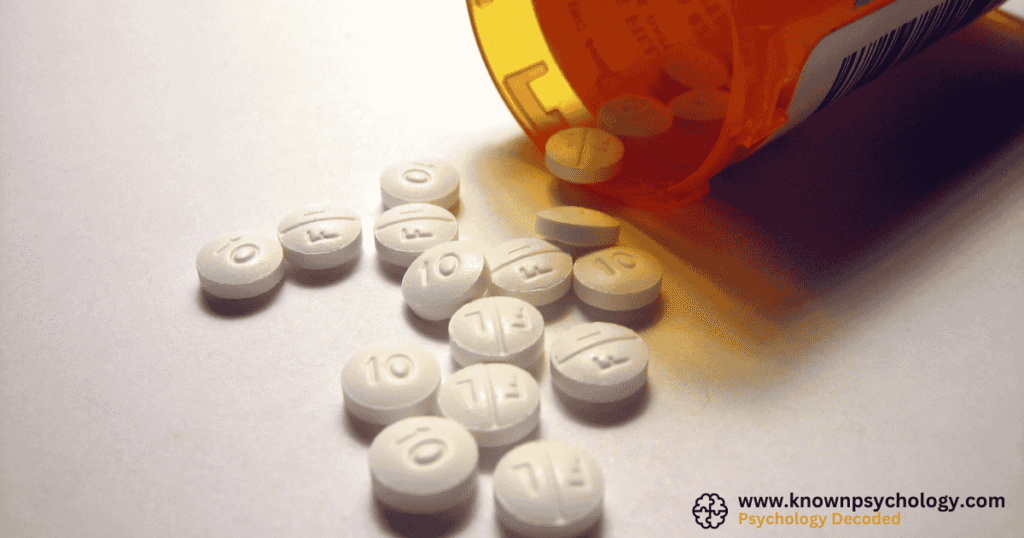
If you’ve been prescribed Lexapro (escitalopram) for anxiety, you’re probably wondering: How long does it take for Lexapro to work for anxiety? You’re not alone. Many people dealing with anxiety want fast relief, and it’s important to know what to expect when starting a new medication like Lexapro.
Key Takeaways
- Lexapro (escitalopram) is an SSRI commonly prescribed for anxiety and depression.
- Most people begin to notice improvement in anxiety symptoms within 1–4 weeks, but full effects may take 6–8 weeks.
- Consistency in taking the medication daily is essential for effectiveness.
- Side effects can occur initially but often diminish after the first few weeks.
- Combining Lexapro with therapy, lifestyle changes, and stress management can improve overall outcomes.
- Never stop or adjust the dosage without consulting a healthcare professional.
What Is Lexapro and How Does It Work?
Lexapro is a selective serotonin reuptake inhibitor (SSRI). It helps increase the levels of serotonin in your brain — a chemical linked to mood and emotional balance. Doctors commonly prescribe it for generalized anxiety disorder (GAD) and major depressive disorder (MDD).
How Long Does It Take for Lexapro to Work for Anxiety?
Lexapro typically takes 2 to 6 weeks to start relieving anxiety symptoms.
In some people, mild improvement in sleep, energy, or appetite can be seen within the first 1–2 weeks, but full anti-anxiety effects often take up to 6–8 weeks.
Your brain needs time to adjust to the new serotonin levels. During the first few weeks, it’s normal to feel no change—or even feel slightly worse before getting better.
Key Factors That Affect How Long Lexapro Takes to Work:
- Dosage and Titration
- How long you’ve had anxiety
- Other medications or health conditions
- Lifestyle and stress levels
Best Time to Take Lexapro for Anxiety
The best time to take Lexapro for anxiety depends on how your body reacts to the medication:
- Morning is ideal for most people because Lexapro can sometimes cause insomnia or restlessness.
- If you experience drowsiness, your doctor might suggest taking it in the evening.
Try to take it at the same time every day, with or without food, and follow your doctor’s advice.
How much dose of Lexapro is high?
Yes, 30 mg of Lexapro is considered a high dose.
- The usual starting dose for anxiety is 10 mg per day.
- Doctors may increase it to 20 mg/day, which is the maximum FDA-approved dose.
- Doses above 20 mg, like 30 mg of lexapro is this a high dose and are off-label. It has been used only in specific cases under close supervision.
Never adjust your dose without speaking to your healthcare provider.
Does Lexapro Cause Weight Gain?
A common concern is Lexapro weight gain. So, does Lexapro cause weight gain? The answer is: it might.
- Some users report gaining 5–10 pounds after a few months of use.
- This could be due to changes in appetite, metabolism, or improved mood leading to better eating habits.
- Not everyone gains weight — in fact, some people lose weight when anxiety symptoms decrease.
Healthy eating and regular exercise can help manage this side effect.
Can You Drink on Lexapro?
It’s best not to.
Alcohol can:
- Increase drowsiness and dizziness
- Lower Lexapro’s effectiveness
- Worsen anxiety or depression symptoms
If you do drink, keep it occasional and minimal — but always ask your doctor first.
Can You Take Lexapro While Pregnant?
Lexapro (escitalopram) is sometimes prescribed during pregnancy, but only when the potential benefits outweigh the risks. It’s classified as a Category C drug by the FDA, meaning animal studies have shown some risks to the fetus, but there are no well-controlled studies in humans.
Possible Risks of Taking Lexapro While Pregnant:
- In the first trimester: Some studies suggest a slightly increased risk of birth defects, though the absolute risk is low.
- In the third trimester: Taking SSRIs like Lexapro late in pregnancy may lead to neonatal adaptation syndrome, which can include symptoms like irritability, tremors, feeding difficulties, or respiratory distress in the newborn.
Why It May Still Be Prescribed:
- If you experience severe anxiety or depression, untreated mental health conditions can pose serious risks to both mother and baby, including:
- Poor nutrition
- Preterm birth
- Postpartum depression
- Difficulty bonding with the baby
In such cases, a doctor may recommend continuing Lexapro to maintain stability during pregnancy.
Final Thoughts
Lexapro can be life-changing for people struggling with anxiety, but it takes patience and consistency. Talk to your healthcare provider if you’re unsure about side effects, dosage, or how long it’s taking to work.
If you’re asking how long does it take for Lexapro to work, remember: every person is different. Give it time, follow your treatment plan, and seek support when needed.
FAQs
1. How long does it take for Lexapro to work for anxiety?
Lexapro usually takes 2 to 6 weeks to show noticeable improvements in anxiety symptoms. Some people may feel better in the first week, but full effects often require more time.
2. Is 30 mg of Lexapro a high dose?
Yes, 30 mg is considered a high dose. The typical maximum FDA-approved dose is 20 mg per day. Doses above that are used only in special cases under medical supervision.
3. Does Lexapro cause weight gain?
Lexapro can cause weight gain in some users due to changes in appetite and metabolism. However, not everyone gains weight, and some may even lose weight as anxiety improves.
4. Can you take Lexapro while pregnant?
Lexapro may be used during pregnancy if the benefits outweigh the risks. It’s important to speak with your doctor, as there may be risks to the baby, especially in the third trimester.
SEO Meta Title (60 characters):
How Long Does Lexapro Take to Work for Anxiety?
SEO Meta Description (155 characters):
Learn how long Lexapro takes to work for anxiety, best time to take it, side effects like weight gain, alcohol warnings, and if 30 mg is a high dose.
Mariam holds an MS in Sociology with a specialization in Medical Sociology and Social Psychology. With a strong academic background and extensive research work in both fields, she brings depth and clarity to complex topics. Her writing explores the intersection of society, health, and the human mind, making academic ideas easy to grasp and relevant to everyday life.


